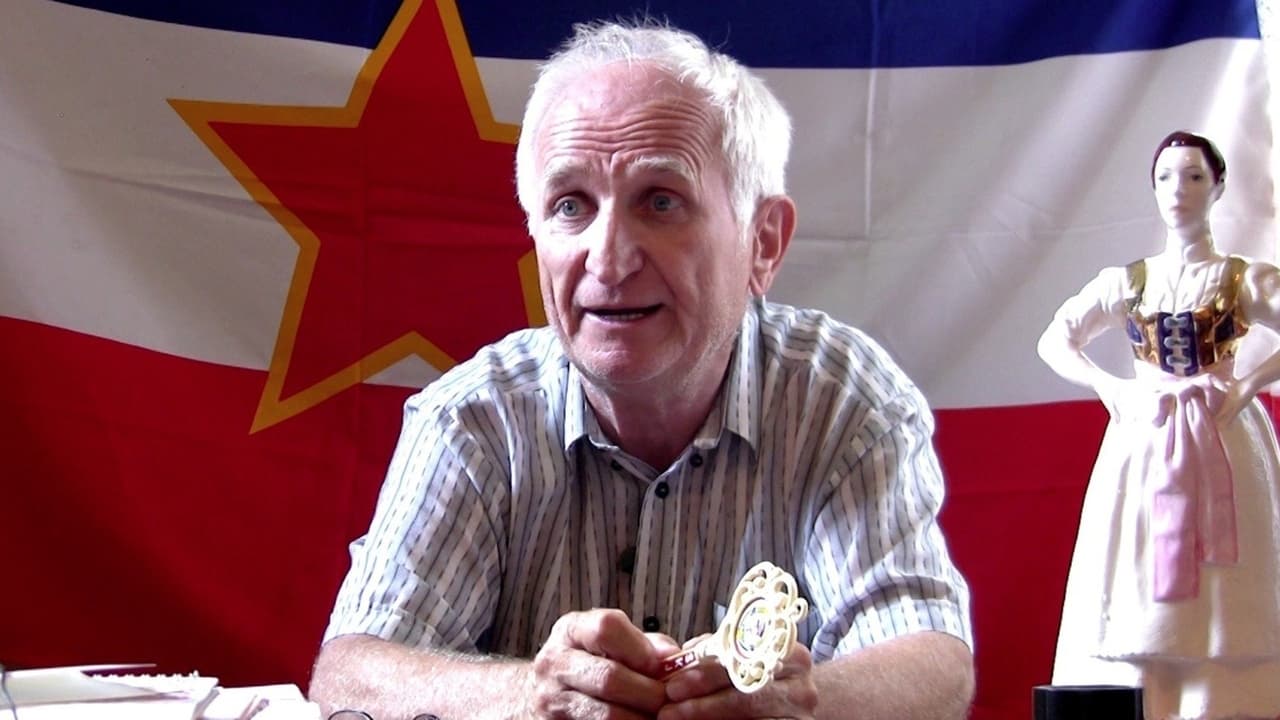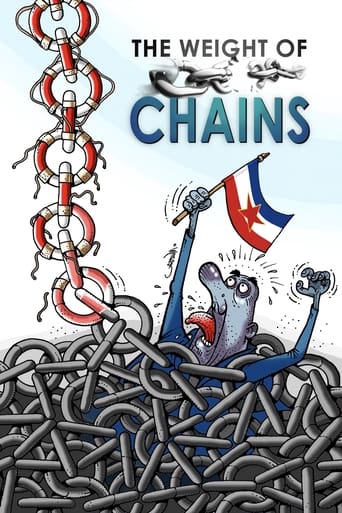

Wonderful character development!
... View MoreI like movies that are aware of what they are selling... without [any] greater aspirations than to make people laugh and that's it.
... View MoreOne of those movie experiences that is so good it makes you realize you've been grading everything else on a curve.
... View MoreGreat movie. Not sure what people expected but I found it highly entertaining.
... View MoreFirstly when I found this title on IMDb, I was delighted that someone really took some time to study this part of the history (and the world) and that all of us can say that this is really what happened. I really believed in this as I found that origin of film is Canada and this director is rather young so he could have something good. Also I always use IMDb-s rates for good movies/series/documentaries and when I saw rate of 8,2 I thought that this must be excellent. Why am I writing this? Because I am obligated for all those who lives, lived in Balkan peninsula (Yugoslavia) and for all people out of the ex Yugoslavia borders which now are watching this movie and they must think that poor these guys - Serbs. During the whole movie you can see how every thing is against this people and country (Serbs) and that they didn't done anything wrong. Albanians, Bosnians, Croats, Macedonians , Montenegrian, Slovenians all of them are genocide people, all of them has some debt to Serbia from history and only Serbs are heroic, honest and non aggressive. To correct few history facts – First – Kingdom of Yugoslavia between two world wars was a pro Serbs country in which life was awful for all inhabitants including Serbs. Just to remind in this time on 1928. Serbs nationalist Racic shot 5 Croats members of parliament. Secondly – During WW2 Serbia was not occupied by Germany "Reich" control, it was satellite country of Reich under the name of Nediceva Srbija same as Croatian was Nezavisna Drzava Hrvatska under Ustase. Serbs also had camp, for Jews, Albanians, Croats, and all other Serbs which were against Nedic, called Banjica and similar. So basically it was the same story as Jasenovac in NDH. Also Chetniks were cold blood killers and cooperator of Nazis, Italian Fascist, Ustase and Nedic regime. Third – To summarize all situation regarding last 30 years in Yugoslavia. Serbs were not peaceful as neither the Croats or Muslim were. As Director says it was all outside game. There is a lot of things which I consider as not true, correct or honest. I don't want to number them all but viewer should be careful watching this video and evaluate facts stated in this documentary.Only thing what is matter is that "small" people suffered and they were moved from their home, raped, prosecuted and eventually killed. This kind of movie should be to calm all sides not to bring the oil on fire. My opinion is that the movie idea was fine but realization end with lot of history revision and lot of wrong facts which are now bringing viewer to the doubt if lot of correct item was also wrong.
... View MoreAs much as people like to hate the U.S. these day I guess someone could blame us for anything. Look, average people in the former Yugoslavia on all sides are mostly good people and everyone has a point of view. Now for the sad part.Tito held on to power in communist Yugoslavia for quite some time. Although he reigned in a communist nation he still managed to maintain Yugoslavia's sovereignty from the USSR. He did so by skillfully playing both sides. He aided the Soviet Union in the invasion of Hungary, but then admonished the Soviets in Czechoslovakia. Yes, Yugoslavia was held together under Tito for a long time. Was Yugoslavia prosperous? Yes. Now let's get to some disagreements. Was Yugoslavia a threat because they were a prosperous communist country ? NO. For one, the U.S., although unsuccessful was actually pretty interested in Yugoslavia BECAUSE they were communists. After WWII the eastern Europeans may not have been happy with the Soviet brand of Communism, but they were pretty happy to have been liberated from the Nazi's. Unless you were polish, then the Nazi's and Communists were not much different. Yugoslavia represented a Communist country that was independent of the USSR, an alternative. The U.S. during Tito's era wanted to use Yugoslavia as sort of a propaganda tool. In fact, much of the reason that Yugoslavia was able to prosper at the time was because the U.S. supplied a lot of aid to keep him from the Soviets, and although he wasn't part of the Soviet's (in fact Stalin wanted him dead) empire, he wasn't completely cutting off communications with them either, so he could reap benefits from them as well. Yugoslavia was kind of a spy center/DMZ type place in Europe which was important during the Cold War.The U.S. wasn't completely cozy with Tito as he sided with Arabs over the Arab-Israeli conflict, but that just adds to the reason the U.S. wasn't responsible for the war. The U.S. wouldn't prod Yugoslavia into a war and side with Muslims, especially when that is the start to the Al Quaeda age, we just pulled out of Somalia, and the first Gulf war had just ended.What really happened is the Dictator Tito ( He was a man of his age in history, and not exactly a good guy or bad guy) died. That is when fractures started to occur and a recession hit. Anytime a man with Tito's power dies, there is going to be a power vacuum (see Iraq and Egypt for proof). Tito held the country together with an iron fist, he had to. His death in 1980 was bad timing. The USSR had invaded Afghanistan which became their Vietnam. The U.S. was pouring money into Afghanistan and the death of Tito left them in doubt of who may come out of their, a nationalist/communist like Tito, a Soviet friendly communist, a Muslim nation, or a democracy? So the U.S. was pumping up the economy. The unrest and uncertainty doesn't make for sound investments. Finally we now know the USSR was on it's final legs financially and at the end of the decade they had to call the Cold War quits. You can throw some of the blame on the U.S. for sure. We did throw some support here and there, but you will find that any country in the world will consider their own interests. You also have to remember that at the time the broken up USSR was selling everything and there was a lot of concerns about nukes floating around which had not only the U.S. and Western Europe afraid, but the Russians as well. The end of the Cold War brought about an economic depression as well because before the end the Cold War had been churning the global economy with a sort of "keeping up with the Jones's" game. The US had a purpose in defeating the Russians and when that stopped a lot of safe guards, aid, contracts etc. came to a halt.I will agree with the movie about Western Europe. Much of Western Europe now thinks they are a bastion of freedom, equality, etc, etc. The problem is they could really care less about anyone or anything. The U.S. got involved BECAUSE other European countries were willing to ignore a genocide in their back yard. President Clinton (who finally sent troops) lists not sending troops sooner as his biggest failure as a President. He wanted very much to let the Europeans take care of their own backyard for once, and they dropped the ball. Today Europe still does nothing for the rest of the world unless you mention Climate Change, because that benefits them economically. I think everyone had a bit of a hand in this, but as always, everyone feels better if they can blame the U.S. for everything.
... View MoreI truly enjoy a good documentary that is based on objective fact. I even like a mockumentary type films that use irony and satire to express a view. This movie is none of those things.The only thing I liked about this film is that it was made in a style of a modern documentary film that I sometimes like(like Super size me for example). Also it does raise some good questions about EU, monetary policies and the future of countries of ex Yugoslavia in EU. That's about it.I don't like to talk about politics but that is what this film is about. What I dislike most about this film is that it is a Serbian propaganda film disguised as a documentary, based on a very narrow point of view that also pushes a conspiracy theory that the western powers are to blame for the wars in Yugoslavia and the Serbs are just victims, sometimes even heroes for standing up to tyranny in history and now.The director of this movie is a Serbian and he wishes to make his fellow countrymen look better in the eyes of the world by washing away the guilt of crimes and transferring it to another party. Falsifying history, using false facts, diminishing the victims while equating them with their victimizers and shifting blame away from a country(Serbia) whose politics for 2 decades involved oppressing, waging wars, ethnic cleansing and supporting war criminals is wrong and offensive. The part of the film that is closest to the actual truth is the narrative where facts(often inflated) are used but then distorted by putting them into a different context.Imagine a documentary saying that the holocaust happened but it was not the Germans' fault, the Jews share the blame, it was not that bad, the Germans are just as much as victim and it was all thought of, made possible, decided and done by the Americans? This film is similar in that way. Very poor and one sided research was done for this film. The screenwriter should have started with wikipedia and browsing thru old unbiased media.
... View MoreIf you are going to write a review, make sure you watch the entire movie before doing that. Don't just watch first 20 mins or up to the point you cannot agree with and jump straight to the guns. I do not care if you're a serb or croat or Muslim, or lived in the middle of the battlefield over there. You experienced what happened to your town but not the entire region. Just because an evil soldier raped your dog doesn't mean his entire ethnic group is evil. This film is an attempt to dissect the entire event affecting the whole region throughout history. No one side is painted innocent, there may be disagreements in seriousness of some events, but nonetheless the documentary do not dismiss the atrocities that happened on both sides. The lesson to take here is how the imperial powers can instill hatred, fear, and division and exploit unsuspecting, uninformed masses; how greed and power corrupt leaders. And most importantly how to avoid it in the future. With all the recent crisis, meltdowns, and unveilings in EU and US, their agendas back in Yugoslavia is becoming so obvious.If we do not learn from these events, we as the human race is doomed and will surely be enslaved by these evil forces for a long time to come.
... View More